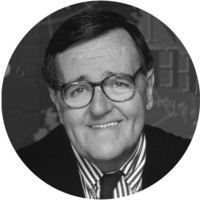Let's be blunt: John McCain's winning campaign over former GOP Rep. J.D. Hayworth in the recent Arizona Republican Senate primary was neither edifying nor inspiring.
In the language of sports, McCain "won ugly" in that home-state primary dominated by conservative voters who distrusted him for his original opposition to George W. Bush's tax cuts, his leadership on campaign finance reform and his collaboration with the late Sen. Edward Kennedy on an immigration bill that would have provided a path to citizenship for undocumented immigrants already working in the U.S.
Ok, so in the summer of 2010 John McCain failed to write a new chapter in "Profiles in Courage." But, as one who has disagreed with him on many issues, I want to say a few words in behalf of John McCain and why he deserves to be cut a little slack.
First, McCain is today one of only seven living Americans — the others being George McGovern, Walter Mondale, Bob Dole, Michael Dukakis, Al Gore and John Kerry — who knows firsthand how painfully public and publicly painful it is to become the presidential nominee of his party and to fail to win the White House. What it means for starters is that the first line of your obituary, "(fill in the blank), defeated presidential nominee, died yesterday at the age of," has already been written.
Having seen up-close that awful sense of loss and disappointment, I offer this story about this tiny brotherhood of misery. In 1988, four years after he had lost to Ronald Reagan in a landslide, Walter "Fritz" Mondale bumped into George McGovern, who in 1972 had lost in another landslide to Richard Nixon. Mondale reportedly asked McGovern, "Please tell me, George, when does it stop hurting?" McGovern's revealing response, some 16 years after his own defeat: "I'll let you know, Fritz, I'll let you know."
Frequently over the years, I have been criticized — usually by liberals, but also by conservatives — for going "soft" on John McCain. I plead guilty. I have been impressed by McCain's lonely Senate crusades — working with Democrats — to successfully rid national campaigns of unrestricted seven-figure "soft money" donations from corporations, labor unions and wealthy individuals. I knew it was not easy for him to be just one of two GOP senators willing to oppose President George W. Bush's $1.35 trillion in tax cuts in 2001 or to be one of three to oppose Bush's second round of tax cuts in 2003.
Yes, he later switched his position. But John McCain's 2000 presidential campaign reminded those of us who cover politics and those who care about the country and how we choose our leaders just what politics at its best can be. In the eight months before the New Hampshire Republican presidential primary, McCain — overwhelmingly outspent and outgunned by George W. Bush's establishment-fueled machine — held 114 town meetings where he stood and answered, with candor and humor, voters' questions.
He listened respectfully to the voters, and they listened to his answers. The more voters saw of him, the more they liked him. He won an 18 percent upset victory over Bush. He also gave reporters covering his campaign unmatched access. He was unscripted with the press, almost all of whom respected his frankness in 2000 by resisting the competitive urge to embarrass the candidate by printing some out-of-context gaffe. Did that make us complicit? I think instead it contributed to better coverage of the campaign and the candidates.
I do know that John McCain's 2000 campaign in New Hampshire taught all of us how politics at its best can serve the nation. And for this alone, I give him the benefit of the doubt.
To find out more about Mark Shields and read his past columns, visit the Creators Syndicate web page at www.creators.com.






View Comments